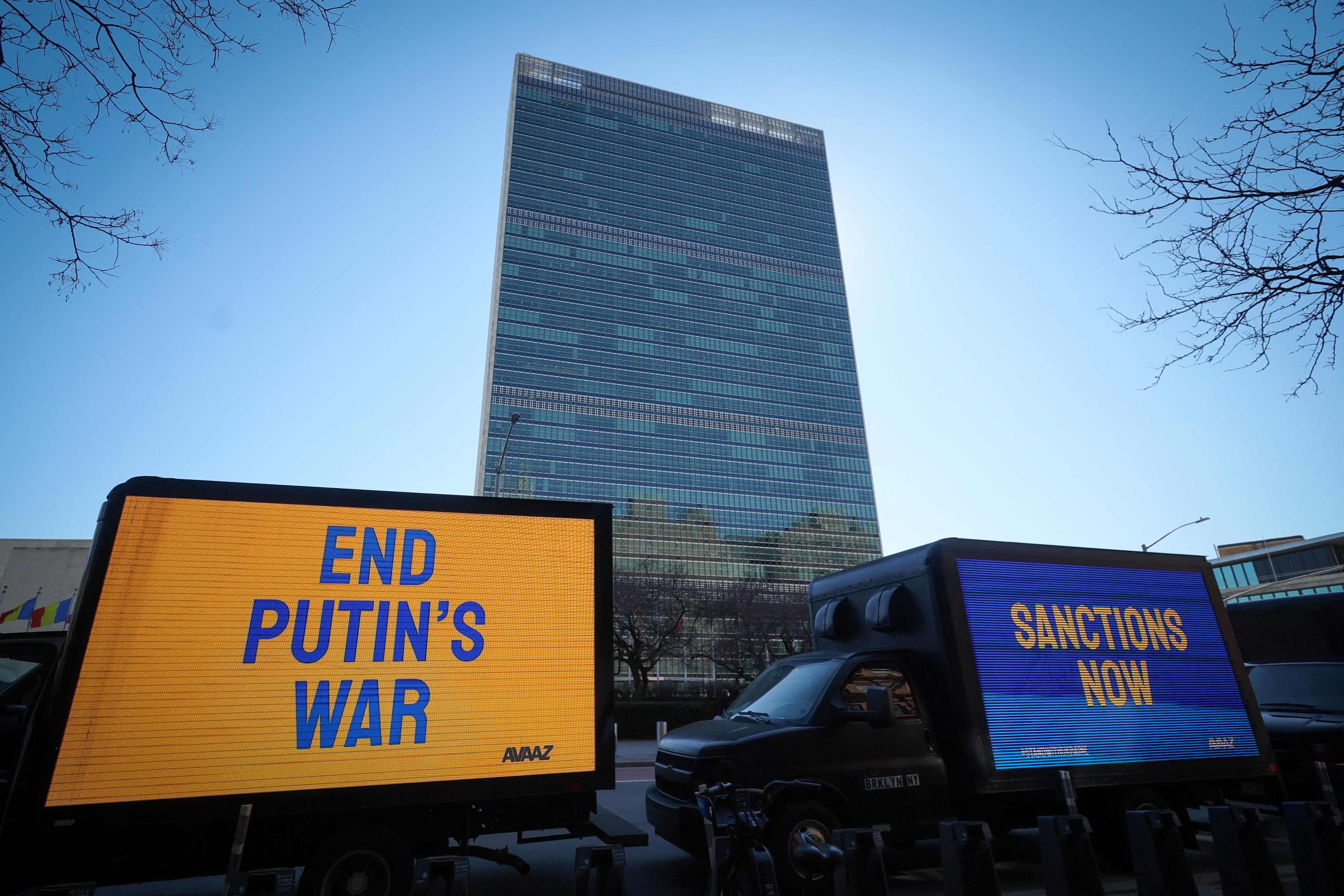Maybe you’ve heard that debate is underway at the United Nations about how to respond to Russia’s invasion … and you’re wondering what’s the point ... because you’re remembering that Russia, a permanent member of the Security Council, can veto just about anything it doesn’t like. Like any move to condemn Russia for invading Ukraine, for example. But this is the importance of UN General Assembly Resolution 377(V). Dating from 1950, this so-called Uniting for Peace Resolution offers a way past the veto. It stipulates that, in the case of an act of war, the General Assembly shall “consider the matter immediately with a view to making recommendations to members for collective measures.” In other words, the GA can vote to essentially override Russia’s veto. And since the GA voted in 2014 that the Russian seizure of Crimea violated Ukraine’s territorial integrity, the body will probably take a similar view of Russia’s all-out war on the rest of Ukraine. The GA could order a UN investigation, call for more sanctions on Russia, or even move to kick Russia out of some UN bodies. Whether any of this will amount to more than powerful symbolism or add anything meaningful to the ongoing international response to Russia’s invasion is another matter.
- Will UNGA act? A world of knock-on challenges as global leaders meet. - GZERO Media ›
- Why is Russia on the UN Security Council? - GZERO Media ›
- Why is Russia on the UN Security Council? - GZERO Media ›
- Why is Russia on the UN Security Council? - GZERO Media ›
- UN official: Security Council Is “dysfunctional” - but UN is not - GZERO Media ›
- Explaining: the history of the UN headquarters - GZERO Media ›
More For You
In this Quick Take, Ian Bremmer addresses the killing of Alex Pretti at a protest in Minneapolis, calling it “a tipping point” in America’s increasingly volatile politics.
Most Popular
Who decides the boundaries for artificial intelligence, and how do governments ensure public trust? Speaking at the 2026 World Economic Forum in Davos, Arancha González Laya, Dean of the Paris School of International Affairs and former Foreign Minister of Spain, emphasized the importance of clear regulations to maintain trust in technology.
Will AI change the balance of power in the world? At the 2026 World Economic Forum in Davos, Ian Bremmer addresses how artificial intelligence could redefine global politics, human behavior, and societal stability.
Ian Bremmer sits down with Finland’s President Alexander Stubb and the IMF’s Kristalina Georgieva on the sidelines of the World Economic Forum to discuss President Trump’s Greenland threats, the state of the global economy, and the future of the transatlantic relationship.
